INTERNACIONAL
Zelenskyy forced to rethink anti-corruption law after public backlash
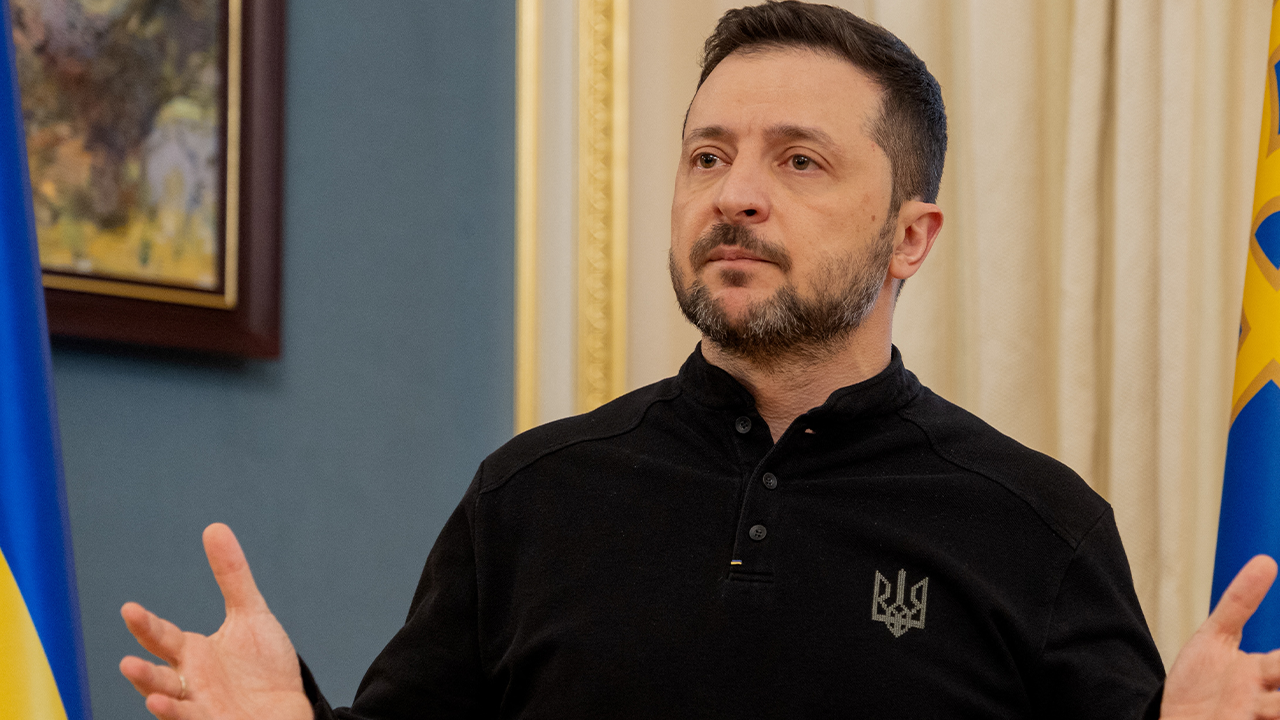
NEWYou can now listen to Fox News articles!
Ukrainian President Volodymyr Zelenskyy is set to introduce new legislation that will restore the independence of anti-corruption agencies in Ukraine after fierce public opposition and international condemnation over signing a law that targeted Ukraine’s independent anti-corruption institutions.
In a sudden turn of events, Zelenskyy posted a video on X in which he said, «Of course, everyone has heard what people are saying these days – on social media, to each other, on the streets. It’s not falling on deaf ears. We analyzed all concerns, all aspects of what needs to be changed and what needs to be stepped up.
«I will propose a bill to the Verkhovna Rada of Ukraine that will be the response. It will ensure the strength of the rule of law system, and there will be no Russian influence or interference in the activities of law enforcement. And very importantly – all the norms for the independence of anti-corruption institutions will be in place,» he said according to a translated version on the screen.
UKRAINE SEES SWEEPING PROTESTS OVER BILL WEAKENING ANTI-CORRUPTION AGENCIES
Mass protests erupted in Kyiv and across Ukraine in opposition to the law, the largest anti-government demonstrations since Russia’s full-scale invasion began in February 2022. European Commission President Ursula von der Leyen called Zelenskyy to express her strong concerns and convey Brussels’ disapproval of the bill.
One source close to the situation, who asked to remain anonymous, told Fox News Digital that the incident should give President Zelenskyy pause as to whether he is getting the best counsel from his closest people.
The individual with ties to the Ukraine government said this propaganda bonanza for Russia is a self-inflicted wound and also shows the president and his team have misread public sentiment.
Many Ukrainians and Western allies fear the current turmoil could jeopardize their path to join the European Union and fracture society’s unity while the country faces continued Russian onslaughts.
Although he signed the original bill, Zelenskyy said with the announcement of the new bill that it will ensure the independence of anti-corruption bodies and also eliminate Russian influence over their activities. In defending the previous legislation, he claimed that Ukraine’s anti-corruption infrastructure was infiltrated by Russia.
Ukrainians protest in the first wartime rally against a newly passed law, which curbs independence of anti-corruption institutions, amid Russia’s attack on Ukraine, in central Lviv, Ukraine July 22, 2025. (Roman Baluk/Reuters)
The previous bill that passed on Tuesday allowed Ukraine’s Prosecutor General, appointed by the president, wide authority over cases before the National Anti-Corruption Bureau of Ukraine (NABU), an anti-corruption agency that was championed by the United States and Europe. It gave the prosecutor general the sweeping power to transfer cases from NABU and usurp other powers from the Specialized Anti-Corruption Prosecutor’s Office (SAPO), the agency responsible for prosecuting NABU’s cases.
UKRAINE’S ZELENSKYY NAMES NEW PRIME MINISTER FOR FIRST TIME SINCE RUSSIA’S WAR BEGAN
«That is tantamount to being able to squash any legal accountability for corruption,» Josh Rudolph, anti-corruption expert and senior fellow at the German Marshall Fund, told Fox News Digital.
Rudolph noted that the heads of NABU and SAPO are highly reputable professionals and were selected with the concurrence of Ukraine’s international partners, a key component of joining the EU.
«Zelenskyy could have come out as a hero or a villain if he signed the bill. It was a moment of truth,» Orysia Lutsevych, Head of Ukraine Forum, Chatham House, told Fox News Digital. Even though Zelenskyy listened to public opinion and ultimately backed down, his overall popularity continues to take a hit.
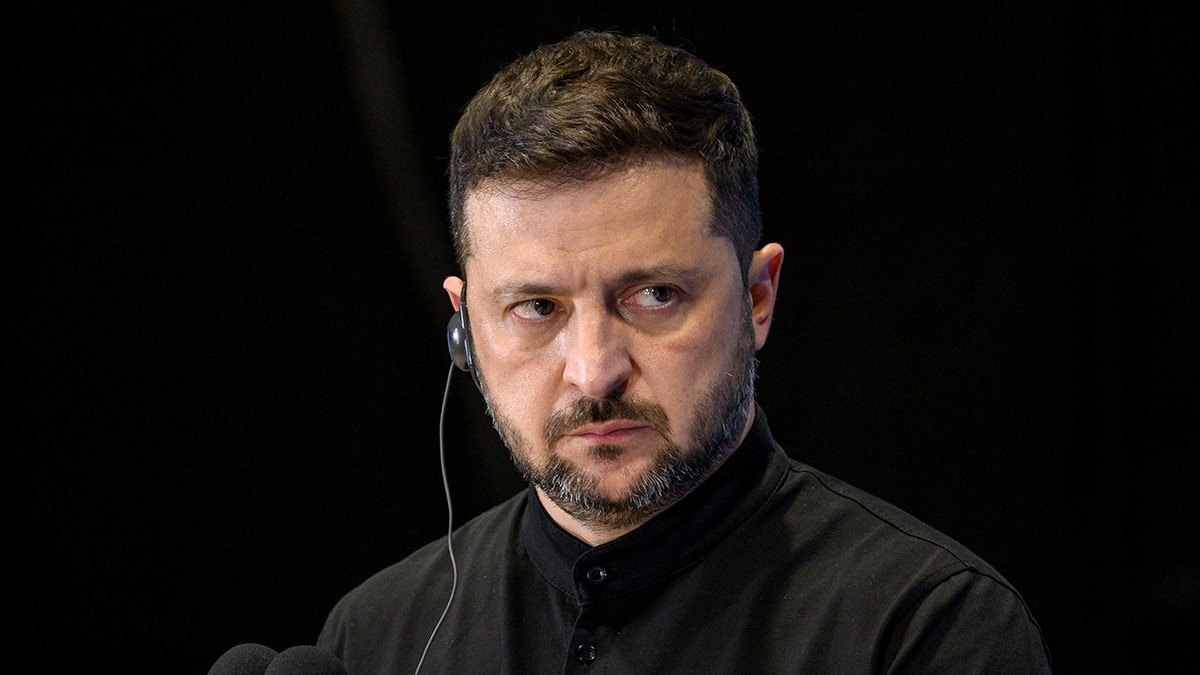
Ukrainian President Volodymyr Zelensky and Italian Prime Minister Giorgia Meloni (not in picture) hold a joint press conference during the Ukraine Recovery Conference 2025 (URC2025) at Roma Convention Center La Nuvola, on July 10, 2025 in Rome, Italy (Antonio Masiello/Getty Image)
Ukraine has been plagued by government corruption since declaring independence from the Soviet Union in 1991. Many Ukraine watchers are worried that efforts to rollback anti-corruption initiatives will be fodder for Russian propaganda and fracture Ukraine’s unity at a critical time in the war.
«Russia can and will use Ukraine’s move to restructure anti-corruption agencies to argue lack of unity, support for the government, and internal disagreements. It will again apply its propaganda arguments about legitimacy of Zelenskyy and the need for elections,» Tymofiy Mylovanov, President of Kyiv School of Economics, told Fox News Digital.
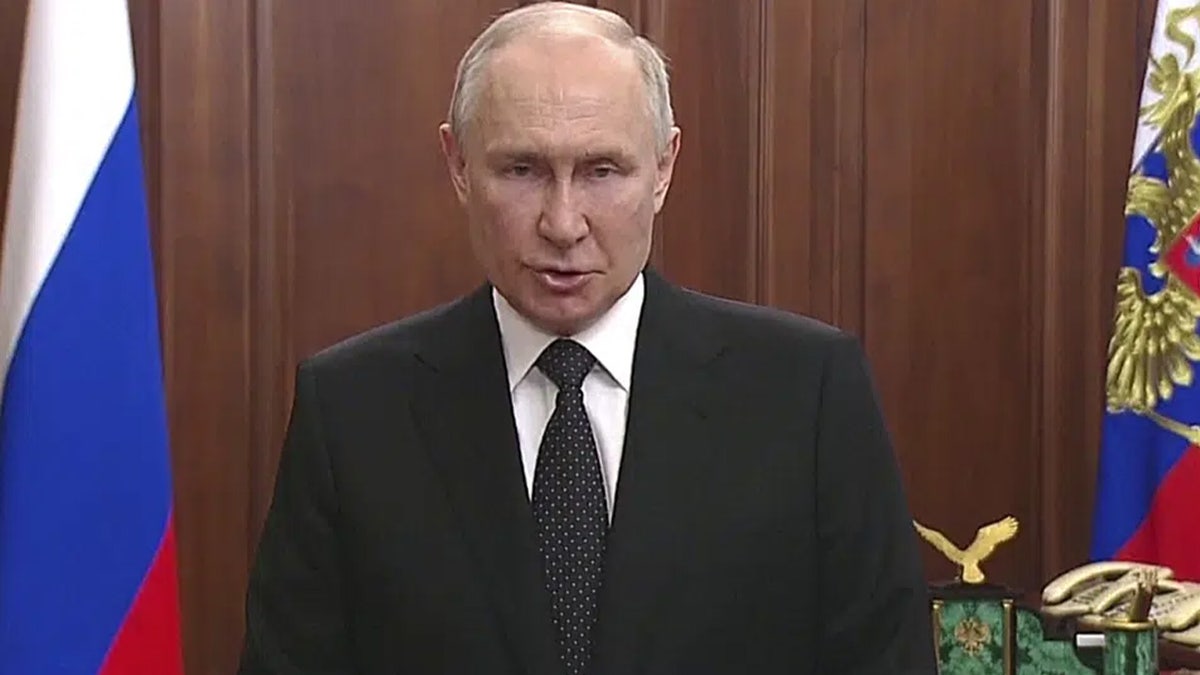
In this handout photo taken from video released by Russian Presidential Press Service, Russian President Vladimir Putin addresses the nation in Moscow, Russia, Saturday, June 24, 2023. (Russian Presidential Press Service via AP)
CLICK HERE TO GET THE FOX NEWS APP
Russian President Vladimir Putin claims Zelenskyy is illegitimate and has called for new elections in Ukraine. Elections were scheduled for March 2024 but postponed while the country remains at war and under martial law.
The disunity within Ukraine comes at a time when Russian forces are escalating large-scale missile and drone strikes in Kyiv and across the country. Russian forces continue to make advances while Kyiv urgently pleads with Europe and the United States to send air defense systems and other key weapons to limit Moscow’s battlefield gains.
INTERNACIONAL
Así es GoHam, la “hamburguesa” cósmica que revela vórtices y es clave para entender la creación de nuevos planetas

Uno de los discos protoplanetarios más grandes registrados hasta la fecha se reveló con notable nitidez mediante el radiotelescopio ALMA, según informó el Observatorio Nacional de Radioastronomía. Los datos del sistema conocido como Gómez’s Hamburger (GoHam) ofrecen una oportunidad excepcional para estudiar el origen de los planetas gigantes y la estructura vertical de gas y polvo en estos entornos.
La investigación, presentada en enero en la reunión anual de la American Astronomical Society y pendiente de publicación, evidenció el potencial de ALMA para mostrar las capas apiladas de gas y polvo que giran alrededor de una estrella joven. Al observar este disco casi de perfil, los astrónomos localizaron con precisión los granos de polvo de tamaño milimétrico y diferentes moléculas gaseosas en capas específicas, algo poco común en otros discos protoplanetarios.
En el sistema GoHam, los científicos identificaron varios gases entre sus componentes, como dos formas de monóxido de carbono y compuestos de azufre, incluido el monóxido de azufre. El gas más ligero, el monóxido de carbono 12, ocupa las capas más alejadas del plano central, mientras el monóxido de carbono 13 se sitúa en una franja inferior.

El monóxido de azufre se encuentra aún más cerca del plano central. La capa de polvo se presenta fina y concentrada en el eje; en contraste, el gas se extiende a considerable distancia hacia arriba y hacia abajo, lo que deja en evidencia la expansión vertical de la estructura gaseosa.
En cuanto a tamaño, el disco de GoHam sobresale dentro de su categoría: el monóxido de carbono 12 alcanza casi 1.000 unidades astronómicas de radio y la altura vertical suma varios centenares de unidades astronómicas.
Estos parámetros lo posicionan entre los lugares de mayor tamaño observados donde podría surgir la formación de planetas. La masa total de polvo, mucho mayor que la habitual en sistemas similares, confirma la capacidad de GoHam para generar planetas gigantes y la posibilidad de un futuro sistema con varios planetas, según el Observatorio Nacional de Radioastronomía.
A diferencia de otros sistemas, GoHam muestra un claro desequilibrio norte-sur en la emisión de polvo milimétrico: una de las caras del disco exhibe mayor brillo y extensión, fenómeno que probablemente se relacione con la presencia de un vórtice o una perturbación que acumula sólidos y favorece la formación planetaria. En la zona norte, los astrónomos detectaron una emisión tenue de monóxido de carbono en áreas alejadas, compatible con un viento provocado por la radiación estelar que dispersa gas hacia el espacio.

También observaron una estructura de arco de monóxido de azufre en uno de los extremos exteriores del disco, alineada con un conglomerado denso denominado “GoHam b”. Este objeto podría representar el núcleo de un planeta de gran masa y mostrar uno de los primeros momentos observables de formación de un cuerpo planetario en la parte externa del disco.
Charles Law, investigador principal del proyecto y NHFP Sagan Fellow en la Universidad de Virginia, destacó la importancia de estas observaciones: “GoHam nos ofrece una perspectiva excepcional de la estructura vertical y radial de un disco casi de perfil de gran tamaño”, afirmó, según declaraciones recogidas por el Observatorio Nacional de Radioastronomía. El investigador consideró este sistema un modelo de referencia para probar simulaciones y teorías sobre la evolución de discos y formación de planetas.
El papel de ALMA como instalación internacional fue fundamental en este hallazgo. Su ubicación en la zona andina de Chile y la colaboración de instituciones científicas de todo el mundo permitieron obtener datos de alta resolución, esenciales para comprender cómo nacen planetas gigantes en órbitas exteriores y cómo su presencia puede reorganizar el gas y el polvo circundante.
La excepcional combinación de tamaño del disco, asimetrías detectadas y signos de una nueva formación planetaria convierten a GoHam en un laboratorio ideal para descifrar el origen y la evolución de los planetas gigantes en las zonas más alejadas de sus sistemas.
universo,galaxias,cosmos,estructura cósmica,astronomía,espacio,materia oscura,filamentos galácticos,ciencia,arte digital
INTERNACIONAL
Minnesota hotel removed from approved federal lodging list after refusing to accommodate ICE agents

NEWYou can now listen to Fox News articles!
FIRST ON FOX: The General Services Administration (GSA) is terminating the Hampton Inn Lakeville in Minnesota from its list of approved lodging accommodations for all federal employees after the hotel refused to accommodate ICE agents and immigration officers.
Several emails posted by the Department of Homeland Security and ICE on Monday showed that the hotel was «not allowing any ICE or immigration agents to stay at our property.»
«After I was informed that a local Hilton property canceled rooms reserved for ICE, GSA immediately reviewed the matter and found the hotel to be in clear violation of its government lodging program requirements,» GSA Administrator Edward C. Forst told Fox News Digital in a statement. «The property has been removed from the programs and booking tools effective immediately. GSA unequivocally supports our federal law enforcement partners.»
The GSA is a federal agency responsible for managing and supporting the basic functioning of federal agencies. Forst was nominated by President Donald Trump to lead the agency, and he was sworn in on Christmas Eve after being confirmed by the Senate in mid-December.
DHS SWEEPS TWIN CITIES, ARRESTS 400 AS FEDS BLAST WALZ FOR ‘FAILING TO PROTECT MINNESOTA’
The Trump administration is removing a Minneapolis hotel from its list of approved lodging for federal employees after the establishment refused to accommodate ICE agents. (Christopher Juhn/Anadolu via Getty Images / Yuri Gripas/Abaca/Bloomberg via Getty Images)
The formerly Hilton-branded hotel was stripped of its Hilton label by the hotel chain Tuesday morning after a video surfaced appearing to show that the location continued to deny immigration officers despite Hilton Hotels saying that the venue had apologized and that «properties are open to everyone and we do not tolerate any form of discrimination.»
The hotel participated in a government lodging program partnership, known as GSA FedRooms, between federal employees and the location. Following the Hampton Inn Lakeville denying federal agents rooms, GSA has since removed the property from all lodging programs and travel systems.
HOMAN VOWS TO ENFORCE IMMIGRATION LAWS IN TWIN CITIES ‘WITHOUT APOLOGY’ AMID MAYOR OPPOSITION
FedRooms is a GSA-managed transient lodging program providing Federal Travel Regulation (FTR) compliant hotel accommodations to U.S. government and military travelers, at or below federal per diem rates.
GSA also terminated emergency lodging services and long-term lodging at the property.
Fox News Digital learned through sources that the hotel accommodated federal agents for roughly 130 total nights last year.
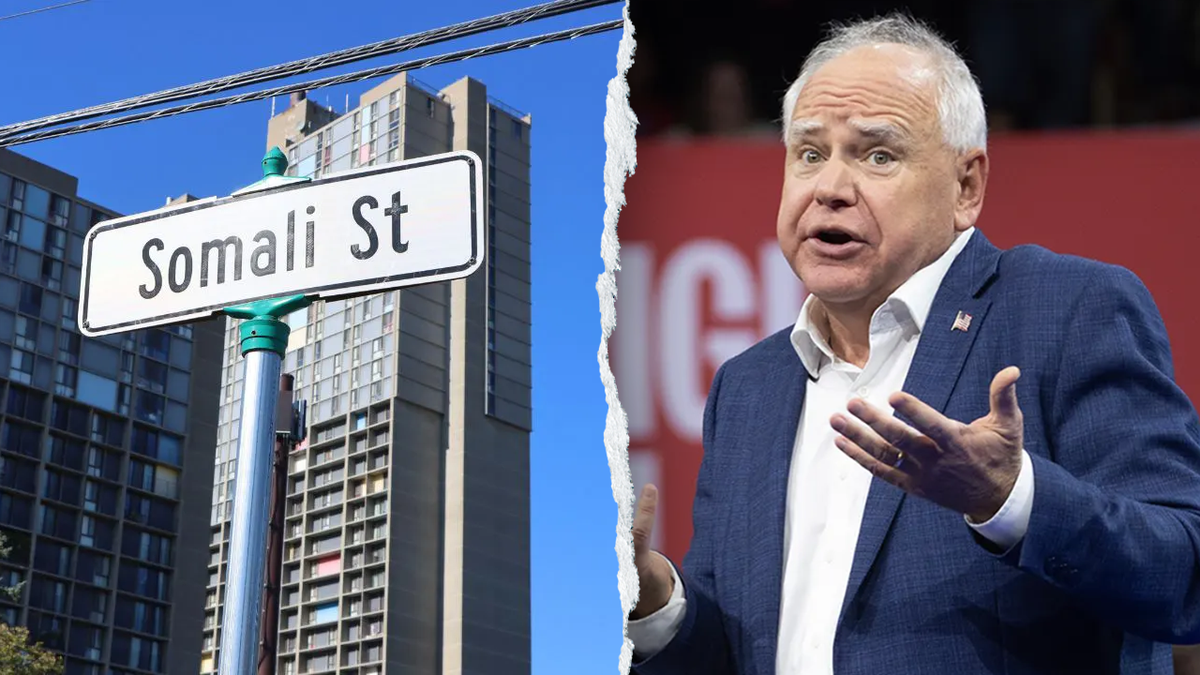
DHS has had a heavy presence in Minnesota as a scandal surrounding fraudulent daycare centers embattled the state. Gov. Tim Walz announced he would not seek re-election on Monday morning. (Michael Dorgan/Fox News Digital; Scott Olson/Getty Images)
FEDS LAUNCH ‘MASSIVE’ INVESTIGATION AFTER VIRAL VIDEO ALLEGES MINNESOTA DAYCARE FRAUD
Including active-duty military members along with civilian employees, the total number of federal workforce exceeds 4 million.
Hilton Hotels noted in their initial statement that the Hampton Inn Lakeville is independently owned and operated and said that the property took «immediate action to resolve this matter and are contacting impacted guests to ensure they are accommodated.»
However, a viral video posted to X by freelance journalist Nick Sortor on Tuesday morning showed an employee at the counter continuing to deny federal agents, going against Hilton’s statement.
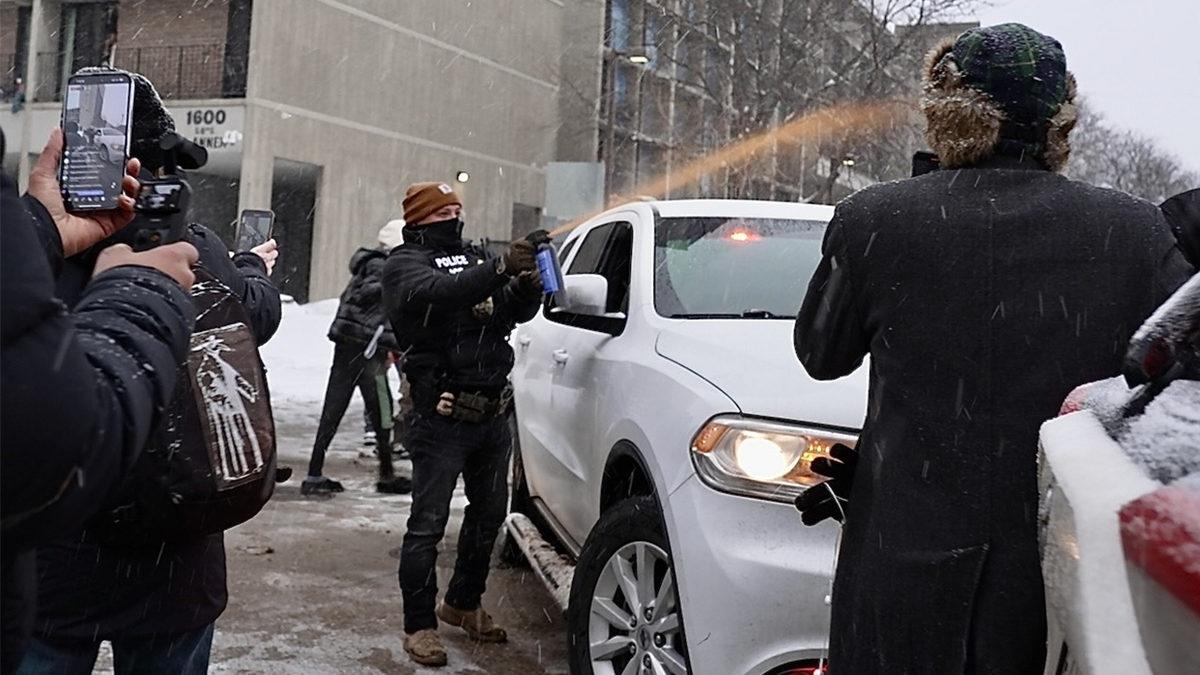
Activists confronted a group of Immigration and Customs Enforcement officers in the largely Somali neighborhood of Cedar-Riverside in Minneapolis, Tuesday, Dec. 9, 2025. (Mark Vancleave/AP Photo)
Hilton Hotels took action shortly after, separating the individual hotel from their network.
CLICK HERE TO DOWNLOAD THE FOX NEWS APP
«A recent video clearly raises concerns that they are not meeting our standards and values,» Hilton Hotels said in a statement. «As such, we are taking immediate action to remove this hotel from our systems. Hilton is — and has always been — a welcoming place for all.»
Hampton Inn Lakeville appears to have been removed from Hilton’s website.
Preston Mizell is a writer with Fox News. Story tips can be sent to Preston.Mizell@fox.com and on X @MizellPreston
immigration,donald trump,hotels,illegal immigrants,somali immigrant community,minnesota fraud exposed
INTERNACIONAL
Top Canadian officials to visit Greenland amid international fears as Trump eyes NATO-linked territory

‘We need Greenland’: Trump
President Donald Trump tells reporters aboard Air Force One why the United States needs Greenland for ‘national security.’ (Credit: The White House/YouTube)
NEWYou can now listen to Fox News articles!
Countries across the globe are voicing their concerns as President Donald Trump appears to eye Greenland for what he says are reasons relating to U.S. national security. Amid the developing controversy, two top Canadian officials are reportedly planning to visit Greenland — and possibly open an embassy there.
Canadian Foreign Minister Anita Anand and Governor General Mary Simon, who is of Inuk descent, are expected to visit Greenland in early February, according to The Associated Press. Simon became Canada’s first indigenous governor general — the representative of Britain’s King Charles as head of state — in 2021 and previously served as Canada’s ambassador to Denmark.
The visit comes as Canada plans to open a consulate in Greenland.
CANADA TO OPEN GREENLAND CONSULATE AFTER TRUMP’S PUSH TO ACQUIRE ISLAND
Canadian Prime Minister Mark Carney meets with Prime Minister of Denmark Mette Frederiksen at the Canadian Embassy in Paris, Tuesday, Jan. 6, 2026. (Christinne Muschi/The Canadian Press via AP)
«The future of Greenland and Denmark are decided solely by the people of Denmark,» Prime Minister Mark Carney said when meeting with Danish Prime Minister Mette Frederiksen at Canada’s embassy in Paris, the AP reported. The two leaders were in France for a meeting of the Coalition of the Willing focusing on Ukraine.
Frederiksen praised Carney and expressed confidence in NATO’s ability to maintain security in the Arctic region.
«You have been very clear in your statement when it comes to the respect for national sovereignty,» Frederiksen said to Carney. «We are both into securing the Arctic region and together with all our NATO allies we can secure the region, so hopefully everybody is willing to work together.»
Trump recently made waves when he renewed his call for the U.S. to annex Greenland, which he asserts would be a key element of U.S. security.
«We need Greenland, from a national security situation,» Trump told reporters aboard Air Force One. «Right now, Greenland is covered with Russian and Chinese ships all over the place. We need Greenland from the standpoint of national security, and Denmark is not going to be able to do it.»

A «Make America Go Away» baseball cap, distributed for free by Danish artist Jens Martin Skibsted, is arranged in Sisimiut, Greenland, on March 30, 2025. (Juliette Pavy/Bloomberg via Getty Images)
TRUMP WARNS ‘SICK’ SOUTH AMERICAN LEADER, REITERATES ‘WE NEED GREENLAND’ FOR NATIONAL SECURITY
White House deputy chief of staff Stephen Miller insisted on Monday that no one would oppose U.S. military action in Greenland. He told CNN’s Jake Tapper, «Nobody is going to fight the United States militarily over the future of Greenland,» Axios reported.
The remarks drew the ire of leaders from Canada, France, Germany, Italy, Poland, Spain and the U.K. who joined Frederiksen in defending the sovereignty of Greenland, which is an Inuit self-governing territory of the kingdom of Denmark. Canada’s decision to get involved in the tussle also comes after Trump made remarks about turning it into the 51st state.
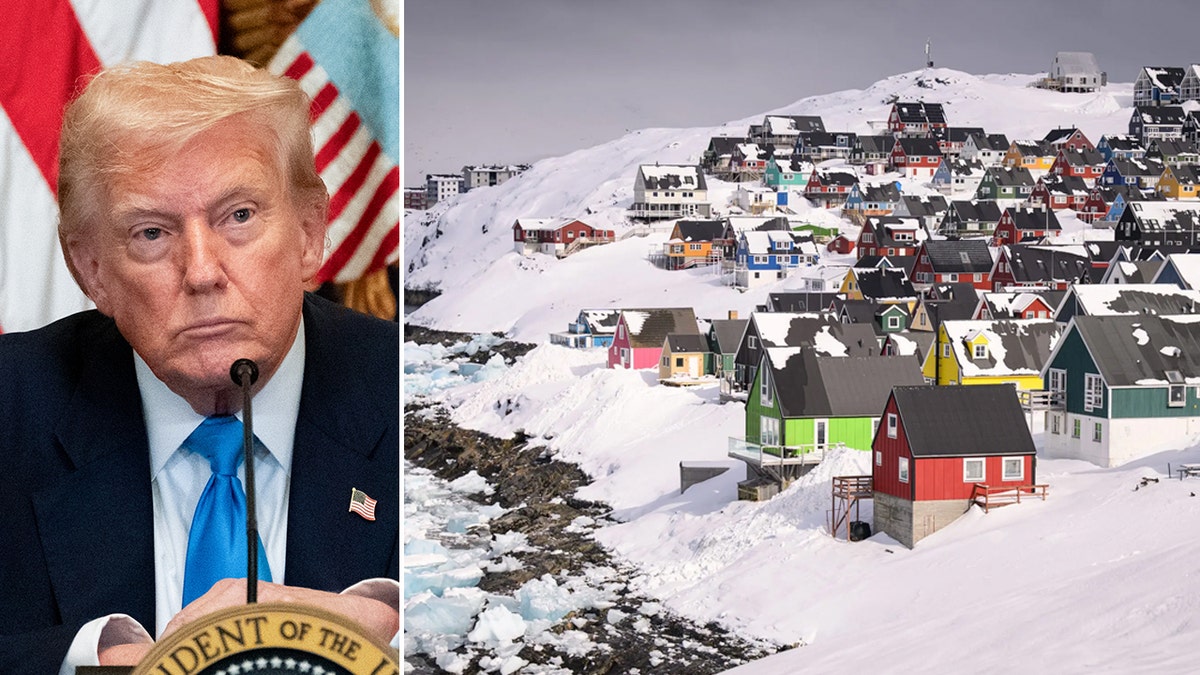
President Donald Trump’s new envoy to Greenland said Tuesday the administration wants to open a dialogue with residents of the territory and that the U.S. is not looking to «conquer» the island. (Leon Neal/Getty Images; Allison Robbert/Bloomberg via Getty Images)
CLICK HERE TO DOWNLOAD THE FOX NEWS APP
A statement from Frederiksen, French President Emmanuel Macron, German Chancellor Friedrich Merz, Italian Prime Minister Giorgia Meloni, Polish Prime Minister Donald Tusk, Spanish Prime Minister Pedro Sánchez and British Prime Minister Keir Starmer asserted, «Greenland belongs to its people.»
«It is for Denmark and Greenland, and them only, to decide on matters concerning Denmark and Greenland,» the statement read.
Anand and Simon’s offices did not immediately respond to Fox News Digital’s request for comment.
world,canada,greenland,nato,donald trump

 CHIMENTOS2 días ago
CHIMENTOS2 días agoLuis Ventura reveló los motivos detrás de la pelea de Juana Repetto y su hermano Bautista Lena: “Esto viene de crianzas y culturas diferentes”, analizó

 CHIMENTOS3 días ago
CHIMENTOS3 días agoEl inesperado acercamiento de Wanda Nara a un ex de la China Suárez que desató un escándalo: “El like a Rusherking que nadie esperaba”

 POLITICA15 horas ago
POLITICA15 horas agoMilei cruzó a Grabois por insultar a un grupo de periodistas y el diputado le respondió: “Se escandaliza por mis modales”















